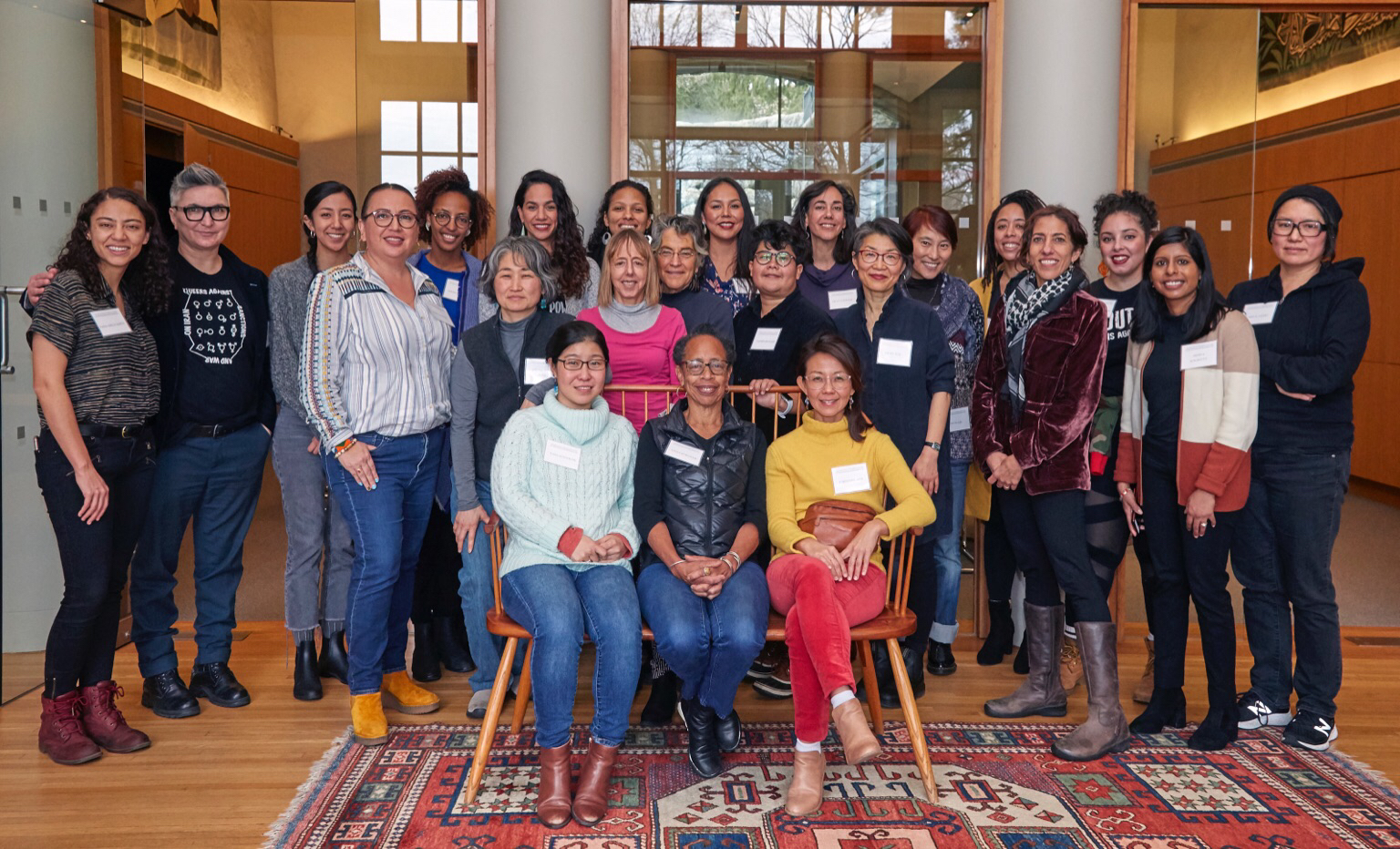A Feminist Vision
for Peace


The Feminist Peace Initiative — led by Grassroots Global Justice Alliance, MADRE, and Women Cross DMZ — seeks to reorient U.S. foreign policy away from militarism and endless wars towards one that advances justice, peace and collective security.
We seek to do this by democratizing the process of shaping U.S. foreign policy by mobilizing anti-war feminists across borders and amplifying the voices of grassroots communities made most vulnerable by imperialism, white supremacy and patriarchy. We call for a new U.S. foreign policy that recognizes interdependence, prioritizes cooperation, seeks reparations for harms, and values people and the planet over profit.
We seek to reorient US foreign policy towards justice, peace and collective security.

In February 2020, Grassroots Global Justice Alliance, MADRE, and Women Cross DMZ convened a group of 23 women and gender nonconforming people—a majority BIPOC (Black, Indigenous, and people of color)—from across the United States to share our collective work against militarism and war and reimagine a new US foreign policy that is driven and shaped by social movements for peace and justice.
In April 2020, as the pandemic struck, we released a “Statement for a Feminist Foreign Policy to Confront the Coronavirus Pandemic” which links responses to the COVID-19 pandemic to a larger conversation about redefining “national security” using the framework of a feminist foreign policy for peace and justice.
In October 2020 we released “A Vision for a Feminist Peace: Building a Movement-Driven Foreign Policy,” which provides a blueprint for a feminist, anti-militarist and internationalist foreign policy driven by social movements.
In March 2025 we released the “Feminist Peace Playbook,” which provides a comprehensive guide to transforming U.S. foreign policy by advancing a feminist peace framework. Through four interconnected strategies, the playbook outlines recommendations for movements, researchers, policymakers, philanthropy and media professionals.
LINK TO FEMINIST PEACE PLAYBOOK

Since our historic convening in 2020, we have advanced conversations in multiple spaces around the importance of mobilizing constituencies across movements and borders, partnering with grassroots leaders from communities most impacted by U.S. foreign policy.
Our three organizations have collectively built a powerful network and organizing infrastructure, which include social justice groups across Black, Brown, diasporic, and Indigenous communities domestically and internationally.
Through the FPI, we seek to strengthen networks and relationships to confront U.S. militarism at home and abroad through our two-pronged strategy:
- Outreach, education, and support within our grassroots networks to bring an anti-militarist, feminist, internationalist perspective to movement organizing and policy advocacy.
- Strategic engagement with policymakers to advance a movement driven approach to US foreign policy.





